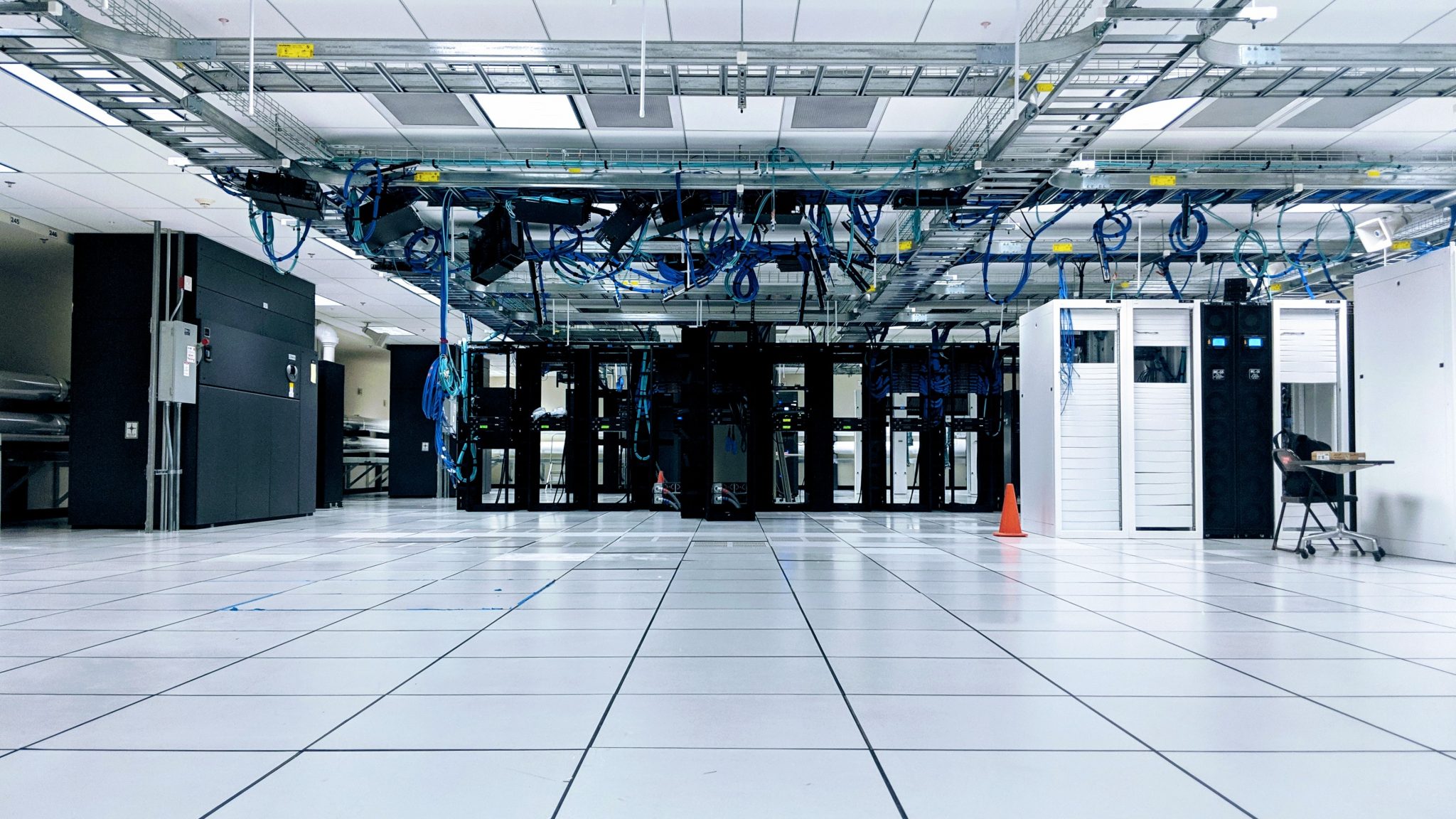As a business owner you face many tough decisions about how to structure your company for success. Deciding to host and interact with your data in the cloud or invest in on-premises servers isn’t easy. You need to know the differences between cybersecurity in the cloud and on-premises.
The differences between cybersecurity in the cloud & on-premises comes down to whose duty it is to secure your data. With on-premises servers, it’s the responsibility of the business. With cloud computing, your business will split that burden with a cloud services provider.
Let’s delve further into cloud storage and computing, on-premises server maintenance, and the advantages and disadvantages inherent in each option. By the end of this article you’ll have a clear understanding of the two and which makes the most sense for you and your business.
How to Choose Storage in the Cloud or On-Premises

The Tradition of On-Premises Servers
For decades, on-premises servers have been the gold standard for enterprise computing. But what exactly does on-premises computing entail?
On-premises computing means that your business has purchased and maintains its own servers. These must be housed in a climate-controlled and secure environment within the office. All hardware and software used by the company is located and serviced internally.
Additionally, on-premises servers require a specialized IT support and security team be hired. These professionals work to keep your business’s hardware, software, and information security methodology updated. This means your company and its IT team retains complete control over all your data and security practices.
As a business you are responsible for your information security plan. Including user access, firewalls, VPNs, antivirus software, security patches, physical security, and mitigating cyber risk. This applies to your servers, server rooms, and all company devices.
Your in-house IT team must receive continuing education in cybersecurity threats, vulnerabilities, and risks. This allows them to ensure that they are backing up and maintaining your data to the latest best practices.
Advantages of On-Premises Computing
There are a few distinct advantages to an on-premises system.
The first is the ultimate customization that on-premises solutions provide. Your IT team can pick the exact configuration of hardware and software best suited to protect company data and devices. If you’re in an industry with regulatory requirements for your data, this is extremely important to ensure compliance.
If you’re looking to maintain hands-on control over your data, on-premises is the clear winner. Assuming you and your IT team are diligent about security practices, your data will remain in house. Period.
Server downtime can critically impact your business’s productivity. Unlike cloud-based solutions, on-premises servers do not rely on the internet to run.
Disadvantages of On-Premises Computing
The main disadvantage of on-premises computing is the cost. Servers and the industrially cooled, highly secured rooms they must be housed in, the individual security tools they require, plus the salaries of your specialized IT team can be incredibly expensive.
As your business grows or technology advances, you will have to add new or replace old servers. If your server room is full you might have to add another climate-controlled secure space to store them.
However, if you have an in-house IT team and account for no ongoing monthly cost like there is on the cloud… It’s possible the costs could even out eventually, over time.
All of your security patches and protocols start out manual when it comes to on-premises servers. Any automations must be developed by your IT team, which is time consuming.
If your servers encounter any problems, no one in your company will have access to your data or its backups. Potential downtime can be a disadvantage of on-premises computing as well as an advantage.
Now, if there is an accident or natural disaster impacting your office, your servers could be compromised or lost entirely. Being based out of one location like this is a serious disadvantage.

Cloud-based Computing
Until just a few years ago, there was no contest between on-premises and cloud computing, as the cloud was new and vulnerable to cyber attack. However, advances in cloud security have propelled it to the same level as on-premises security, a game-changer for businesses.
According to WebTribunal.net, “regardless of the chosen type, 78% of small businesses will fully adopt cloud computing by 2020.”
With cloud computing, your data is stored on servers at the data centers (yes, plural) of your cloud services provider. Backups can be stored in multiple locations and your data can be accessible from anywhere with a stable internet connection. Because the security is inherent in the cloud computing system, that half of your cybersecurity goes anywhere you go.
The responsibility of securing and protecting your data is shared between you and the cloud services provider you choose. While you do lose some control over how your data is secured, there are many options available from providers. Additionally there are automated monitoring tools which means your IT team has more time to dedicate to other tasks. All you and your staff are responsible for securing is your company devices.
The data centers of cloud services providers have thicker walls and robust fire detection, reducing the likelihood of data loss due to a disaster. Backups in multiple locations mean that if your provider loses a data center, your data is still accessible and protected.
The three main cloud services providers are titans in the technology space: Amazon Web Services, Google Cloud, and Microsoft Azure.
Advantages of the Cloud
The cloud is an incredibly flexible storage and computing solution. This flexibility makes up the core of its advantages over on-premises computing.
If your business doubles in size in a year, you can scale up your plan as needed. Similarly, if your storage needs are reduced, you can scale back down to keep costs low through dips in business.
The up-front cost of cloud computing is also significantly lower than on-premises solutions. All you must pay is your monthly subscription fee.
Cloud services providers offer automated security and compliance solutions, which can take much of the burden off of your shoulders. For start-ups, this may be a better option if you don’t have a dedicated IT person or team yet.
Cloud solutions have an advantage when it comes to data redundancy. If, for various reasons, one of the servers of your provider goes down, you and your employees may never even know because you will still have access to your data on another server.
Disadvantages of the Cloud
If you need ultimate control and customization of your storage, security, and compliance measures, cloud storage is not for you. While there are providers of cloud services that offer compliance and security packages, there may not be one that fits all your needs.
Trusting a third party service provider with your most sensitive data can be incredibly nerve-wracking for a small business. Especially if you already have an information security expert on staff. Letting go of that control is no small feat.
Also, while the initial cost is quite low, cloud storage requires a subscription for the life of your business. That ongoing expense can be frustrating to some business owners.
Decision Time
In the cloud and on-premises storage are powerful, secure, and effective solutions. Ultimately, what best suits your business comes down to five main factors:
- Budget
- Compliance needs
- IT expertise and manpower
- Secure, climate-controlled office space
- Growth rate / stability
Take stock of your company as it stands right now, today. Ask yourself these questions:
- What sort of investment into data storage can you make right now?
- Do you know what you need in order to be compliant in your industry?
- Who do you have on staff that can manage cybersecurity? What is their knowledge and skill set?
- Do you have space to house servers? Do you need to do any renovations to make it secure and cool enough?
- How stable is your business? How much does your customer base ebb and flow?
If you have cash, an IT team, an office space, and your business is established, on-premises may be a good fit for you. Alternatively, if your business is a start-up, has few compliance needs, no IT team, no office, and your work is seasonal or inconsistent, a cloud subscription may be the way to go.
We at CloudNexus would love to have an exploratory call with you to help you make the best possible choice.